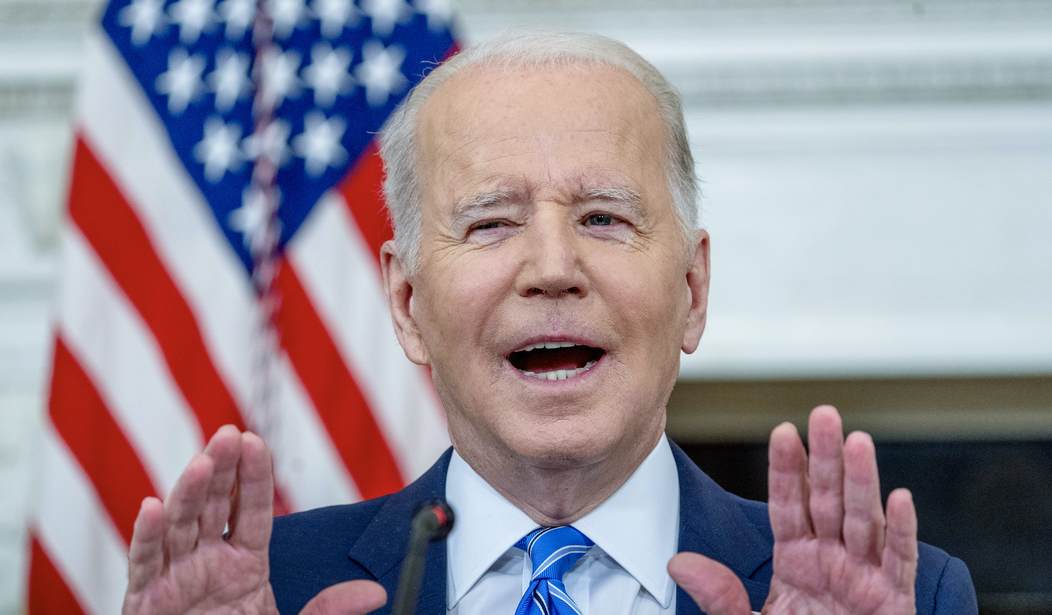Editor's note: This piece was authored by Jeff Luse.
Progressives are so determined to get a win in Congress that they’re willing to gamble on America’s economic future. After failing to garner the support of Joe Manchin and Kyrsten Sinema for his Build Back Better plan, President Biden is narrowing the scope of his social spending, bringing the total cost down to a (still) astounding $1.75 trillion.
To many, $1.75 trillion is too much to spend. But to Democrats, who are convinced that the only way to reverse climate change is by spending our way out of it, this price tag is insignificant. As Massachusetts Senator Ed Markey recently tweeted: “If we want any chance at all of hitting the scientifically necessary emission reductions to save our planet, then we must pass the $555 billion of climate and clean energy provisions in Build Back Better now.”
While Build Back Better is being hailed as our last chance to address climate change, the reality is that the bill would simply add to governmental bloat while failing to deliver the environmental progress progressives claim to want.
Failing to spend taxpayer dollars efficiently is nothing new for the federal government, but Build Back Better takes it to a whole other level. Tucked away in the legislation is close to $200 billion for electric vehicle tax incentives and subsidies. These subsidies equate to lower and middle class families paying for America’s top-earners to purchase an EV. What’s more, the House-passed Build Back Better act provides $60 billion in targeted tax credits for wind and solar, both of which are mature energy technologies that shouldn’t need to be propped up by taxpayers to compete in the marketplace.
Recommended
Further entrenching special interests and cronyism is an inefficient way to reduce greenhouse gas emissions. Increasing inflation through unsustainable federal spending decreases private sector investments in clean energy projects and slows down the energy transition in America and worldwide. Instead, progressives in Congress should turn to solutions that are rooted in economic freedom to reach their climate objectives.
Economic freedom provides a much more effective pathway forward to reducing our carbon footprint, while creating a healthy economy. When analyzing the correlation between economic freedom and environmental performance, economies that were “mostly free” on Heritage’s Index of Economic Freedom had environmental scores that were double that of “mostly unfree” economies. In other words, free economies are clean economies.
There are several ways that the Biden administration can pursue economic freedom in a way that benefits the environment and taxpayers alike. Some common sense policies easing regulations for next generation nuclear, ending tariffs to allow free trade to prosper, and implementing smart tax policy that encourages investments in clean technologies.
The government can also play a limited, yet important role in reaching climate goals. One example is the recently passed bipartisan infrastructure deal, which included funding for several key clean energy demonstration projects such as advanced nuclear and carbon capture and provisions to ease regulatory hurdles to allow the private sector to innovate and thrive.
The legislation also awarded $21.5 billion for the new Office of Clean Energy Demonstrations, which would help bring several innovative and promising clean energy technologies to market.
History and economics show us that top-down government-led mandates are not the best way to reduce CO2 emissions. Economic freedom is. In the United States, we have seen the largest absolute decline in emissions in the world since 2000 due to market forces and natural gas displacing coal. In economically repressed nations such as China, failed government-first policies are creating an economy that pollutes more than the rest of the developed world combined.
Build Back Better is not going to allow us to hit “the scientifically necessary emission reductions to save our planet,” as Sen. Markey claims. Sure, it will marginally decrease emissions at the cost of growing the federal government’s role in our lives, increasing our national debt and hurting economic competitiveness for future generations. But the reality is that it will do very little to save the planet.
If progressives in Congress are serious about the need to address climate change, they should look for ways to expand economic freedom and reduce barriers to allow the private sector to thrive. Increasing inflation through reckless government spending is a sure way to endanger the health of our planet and our economy.
Jeff Luse is a Young Voices Contributor and Policy Assistant at the Conservative Coalition for Climate Solutions (C3 Solutions).

























Join the conversation as a VIP Member